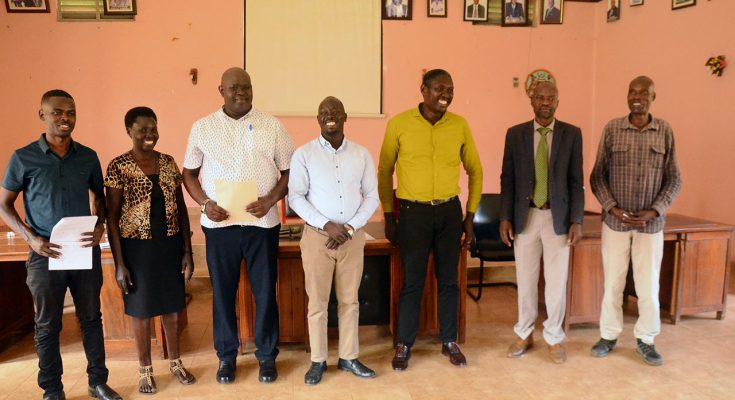In a world where marginalized voices are often ignored, the feeling of being shut out is palpable. Imagine trying to raise a critical issue, particularly during a high-stakes election period, only to find no platform to voice your concerns. You have no leader willing to listen to you and no one to truly represent your plight. That is the painful reality of marginalisation—to have vital concerns but be rendered voiceless and invisible.
But the Northern Uganda Media Club, in partnership with DiploBrief, Friends of Zoka, Solidarity Uganda, and the National Association of Professional Environmentalists (NAPE), has launched a transformative project aimed at giving the microphone to the marginalised community—which includes the youth, women, and persons living with disabilities, among others—at the grassroots level to speak out on issues affecting them through civic engagement and equipping them with digital storytelling to tell them during and after Uganda’s 2026 general elections.
Besides that, this multi-partner initiative will also empower these communities with ethical storytelling techniques as well as foster inclusive dialogue on critical issues: land rights, climate justice, gender equality, and youth marginalisation.
“This project will bridge the gap between communities and decision makers, ensuring that local voices are heard and protected during the electoral process,” said Charles Akena, Program Administrator.
“This is about reclaiming the narrative. It’s about equipping communities with the tools to tell their own stories and demand accountability,” he added.
For years, grassroots communities in Uganda have consistently criticised and pressured the mainstream media, accusing them of underserving them. One of the major reasons, media policy experts argue, is that the mainstream media is heavily commercialised amid corporate pressure, and so critical issues at the grassroots level are often underreported or even ignored in favour of content with the potential to fetch more revenue for a media house. This leaves grassroots communities on their own.
But, according to Alfred Oryem, the NUMEC project coordinator, that will change. He states the project will empower a crop of “community digital ambassadors” who will champion causes using digital storytelling and social media platforms.
“We intend to bring our demands to the politicians rather than the other way round,” said Oryem, highlighting the project’s goal “, is to also hold elected leaders accountable for their promises”.
The project, Oryem highlighted, will have the following key components: a digital storytelling ambassadors’ programme for advocacy; grants for journalists to investigate election-related stories; a fully equipped and secure media hub at NUMEC; digital campaigns on critical issues; and legal and safety support for journalists.
Noteworthy, Oryem said NUMEC’s strategic partnership with DiploBrief, which is based further afield in Nairobi, Kenya, will also amplify its advocacy messages on pressing global issues such as climate, adding that this is help get the attention of political actors.
“We are facing serious threats that come with climate change, lack of access to justice… this project will bring these issues to the fore and amplify them in a way that creates impact,” he said.
His call was reiterated by Dickens Otim, who works for Solidarity Uganda, emphasising that all partners should also focus on “tangible issues because they can easily be accounted for” at the end of the project.
“Tangible things can include planting trees in the community,” he said. “We also need to look into the aspect of continuity of our work. How are we going to continue working even if this project ends”.
Orik Oryem, the Acting Chief Administrative Officer (CAO) of Gulu District, urged the journalists to remain impartial and professional in their reporting to avoid sowing conflict and misinforming the public.
Meanwhile, Peter Banya, the Deputy Resident City Commissioner for Laroo-Pece Division Gulu City, urged the media houses to bolster the quality of debates on their program to meet the desirable standards.




